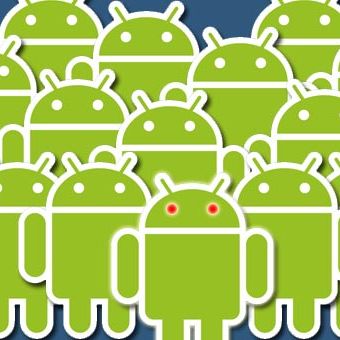CES 2012: Google Boss Denies Android Fragmentation

Android has ‘differentiation’ not ‘fragmentation’ according to Google CEO Eric Schmidt at the CES show
Google boss Eric Schmidt has firmly denied any fragmentation exists in the Android operating system.
Schmidt, who spoke during CNET’s “The Next Big Thing in CE” event at the 2012 Consumer Electronics Show, discussed Android, Microsoft, cloud computing and other topics the former Google CEO has been prone to weigh in on for the last few years.
Android Fragmentation
When CNET host Molly Wood asked Schmidt specifically about Android fragmentation, Schmidt denied Android had any, explaining that Android had “differentiation.” Schmidt explained the difference as follows; differentiation means OEMs will choose how to customise an open-source platform such as Android based on their view of innovation.
Fragmentation, he said, occurs when applications only run on one device but not others, locking users out of consuming those apps. Wood asked whether some of that was happening with Android.
 Schmidt denied this, adding that Google’s goal is to get everybody on Android 4.0 Ice Cream Sandwich, which merges the Android 2.x smartphone branch and the Android 3.x Honeycomb branch for tablets.
Schmidt denied this, adding that Google’s goal is to get everybody on Android 4.0 Ice Cream Sandwich, which merges the Android 2.x smartphone branch and the Android 3.x Honeycomb branch for tablets.
That answer suggests that there certainly was fragmentation in the past. Indeed, what Schmidt defined was a fine tailoring of what fragmentation means through the lens of Google. Each passing version of the platform – Android 2.0, 2.1, 2.2, 2.3–introduced additional complexities and ways for developers to tweak the code.
Google muddied the waters even more a year ago. Fearing the poor quality of Android apps built for the larger screen, the company went on to produce its Android 3.0 Honeycomb branch, only to come full circle and integrate the best features from both branches with ICS.
Many people in the industry call this progress fragmentation. Schmidt simply calls it differentiation. He added that Google allows OEMs to add or change user interfaces as long as they don’t “break” apps. He also noted that some companies can choose to take Android and do what they wish with it. Amazon, he noted, did this with the Kindle Fire tablet.
Mobile Ecosystem
The real theme of the CNET event, however, was the mobile ecosystem and how platforms such as Android fit into it. Schmidt said Google envisions a world where home networks use peer-to-peer networking technologies instead of a home media server to communicate with users’ smartphones and tablets.
Schmidt explained that a user with an Android phone can come into their house, and the phone alerts the TV the user has arrived. He said Google TV is an example of “more devices in the home talking to each other.”
This is no doubt a challenge Google’s Android@Home team is working on to connect household appliances, such as stereo systems and refrigerators via WiFi.
On the subject of getting different products to communicate with one another, Wood asked about the ongoing integration of Google products, such as Google+ and Google search. She suggested Microsoft had a challenge putting all its Web services together into a cohesive unit.
Was Schmidt concerned Google would suffer a similar fate? That opened the door from this zinger: “Microsoft is trapped in an architectural problem they may not get through,” Schmidt said, adding sarcastically: “Oh, I’m so sorry.”
That structure is Windows, which Microsoft has struggled to extend in mobile. Google, he said, has the right architecture structure, which is cloud computing.